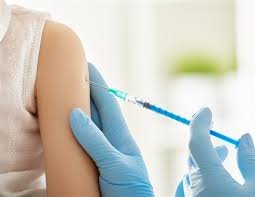Takeda’s QDENGA Trial Confirms Sustained Protection and Favourable Safety Over Seven Years
06 November 2025 | Thursday | News

Image Source : Public Domain
- Findings Reinforce QDENGA’s Long-Term Safety Profile and Two-Dose Vaccination Schedule
- QDENGA is the Longest-Studied Dengue Vaccine and the Only Approved for Use Regardless of Prior Disease Exposure
- Takeda is Expanding Global Access to QDENGA in Partnership with National Immunization Programs, Private Payors and Public Health Coalitions, with 18.6 Million Doses Distributed in 11 Endemic Countries
-Takeda (TSE:4502/NYSE:TAK) announced the completion of the 7-year pivotal Phase 3 Tetravalent Immunization against Dengue Efficacy Study (TIDES) trial evaluating its dengue vaccine, QDENGA®▼(Dengue Tetravalent Vaccine [Live, Attenuated]) (TAK-003). These data, including an exploratory analysis of a booster dose, confirm the favorable benefit and risk profile of QDENGA and that the two-dose regimen provides sustained protection against dengue. This is consistent with its approved indications in multiple countries worldwide, which could simplify vaccination schedules and increase adherence.
“We are seeing an unprecedented surge in dengue, with over 14 million cases reported across more than 100 countries in 2024 alone, largely driven by the impacts of climate change and inadequate urbanization. Brazil, consistently among the countries most impacted by dengue, has contributed to the record-breaking number of dengue cases and rise in severity and deaths. This surge highlights the urgent need for prevention methods like QDENGA,” said Edson Moreira, M.D., Senior Researcher at Oswaldo Cruz Foundation, Brazilian Ministry of Health. “The inclusion of QDENGA in Brazil's public vaccination program has reduced symptomatic dengue cases and dengue-related hospitalizations.”
After 4.5 years, two doses of QDENGA provided 61.2% [95% CI: 56.0, 65.8] vaccine efficacy (VE) in preventing virologically confirmed dengue (VCD).1 A booster dose administered at 4.5 years only marginally increased efficacy to 74.3% [95% CI: 66.7, 80.1] after 2 years.2 QDENGA showed 84.1% [95% CI: 77.8, 88.6] VE in preventing dengue-related hospitalizations at 4.5 years, and VE remained consistently high at 90.6% [95% CI: 78.9, 95.8] after the booster dose.1,2 Overall efficacy was seen across all four dengue virus serotypes through seven years. No new safety signals were observed following the administration of a booster dose.
“QDENGA is the most comprehensively studied dengue vaccine, with more than 60,000 participants globally in the clinical program, and these long-term data highlight the durability of its safety and efficacy profile, across diverse populations worldwide," said Derek Wallace, M.D., president of the Global Vaccine Business Unit at Takeda. “We are proud to have worked hand-in-hand with the clinical trial participants, collaborators and investigators whose contributions have been integral to the success of the TIDES trial and played a role in helping us move closer to a dengue-free world.”
Takeda continues to invest in post-marketing research through real-world evidence generation and ongoing pharmacovigilance to deepen understanding of the vaccine’s safety and impact. This includes an Impact Study in the municipality of Dourados, Brazil in partnership with the Dourados Health Department and a Brazilian researcher, as well as the DEN-401 study, an observational, post-authorization effectiveness study of QDENGA in children and adolescents in Southeast Asia.
Since its first approval in Indonesia in 2022, QDENGA has been authorized in 41 countries and 18.6 million doses have been distributed in 11 endemic countries as of September 2025. The World Health Organization added QDENGA to its List of Prequalified Vaccines underscoring its quality and suitability for public vaccination programs to help address the global dengue threat.
These data were presented at the World Society for Pediatric Infectious Diseases (WSPID) 14th Annual Congress on October 29, 2025.2 Takeda plans to share results from additional non-endemic booster studies at the American Society of Tropical Medicine and Hygiene (ASTMH) Annual Congress on November 11, 2025.
Most Read
- Top 25 Biotech & Biopharma Leaders in Sustainable Innovation, 2025
- China’s Biopharma Dealmaking Surges in H1 2025, Driven by Record Licensing and Oncology Focus
- Chikungunya in China: How a “Forgotten” Arbovirus Found the Perfect Storm
- How Innovation Gaps in Biopharma Raise New Safety Concerns
- Smart Implants and the Future of Musculoskeletal Injury Treatment
- How Ethical Gaps in Psychiatry Could Undermine Biopharma Progress
- The Evolving Landscape of Women’s Health Innovation in the Asia-Pacific
- Using NLP-Driven Decision Support in Emergency Health Assistance
- Taiwan Steps Into the Global Spotlight With a New Cancer Therapy
- The Role of Unique Device Identification (UDI) in Tracing Medical Device Safety
- The Importance of a Patient’s Mental Health During Clinical Trials
Bio Jobs
- The State of Biotech and Life Science Jobs in Asia Pacific – 2025
- Avantor’s New CEO Ligner Aims to Unlock Global Potential and Deliver Shareholder Value
- AstraZeneca Commits $50 Billion to U.S. Expansion by 2030 in Biggest-Ever Global Investment
- Thermo Fisher, SAMRC, and South Africa’s Department of Science and Innovation Launch CATIR to Nurture Next-Gen Scientists
- Cube Biotech Appoints Former Sartorius CEO Dr. Joachim Kreuzburg to Board of Directors
- FDA’s AI Transition Marks a Turning Point in Drug Review: Industry Faces Pressure to Adapt Amid 20% Workforce Cut
- WuXi XDC Completes Mechanical Build of Singapore Bioconjugate Manufacturing Hub
News
Editor Picks











